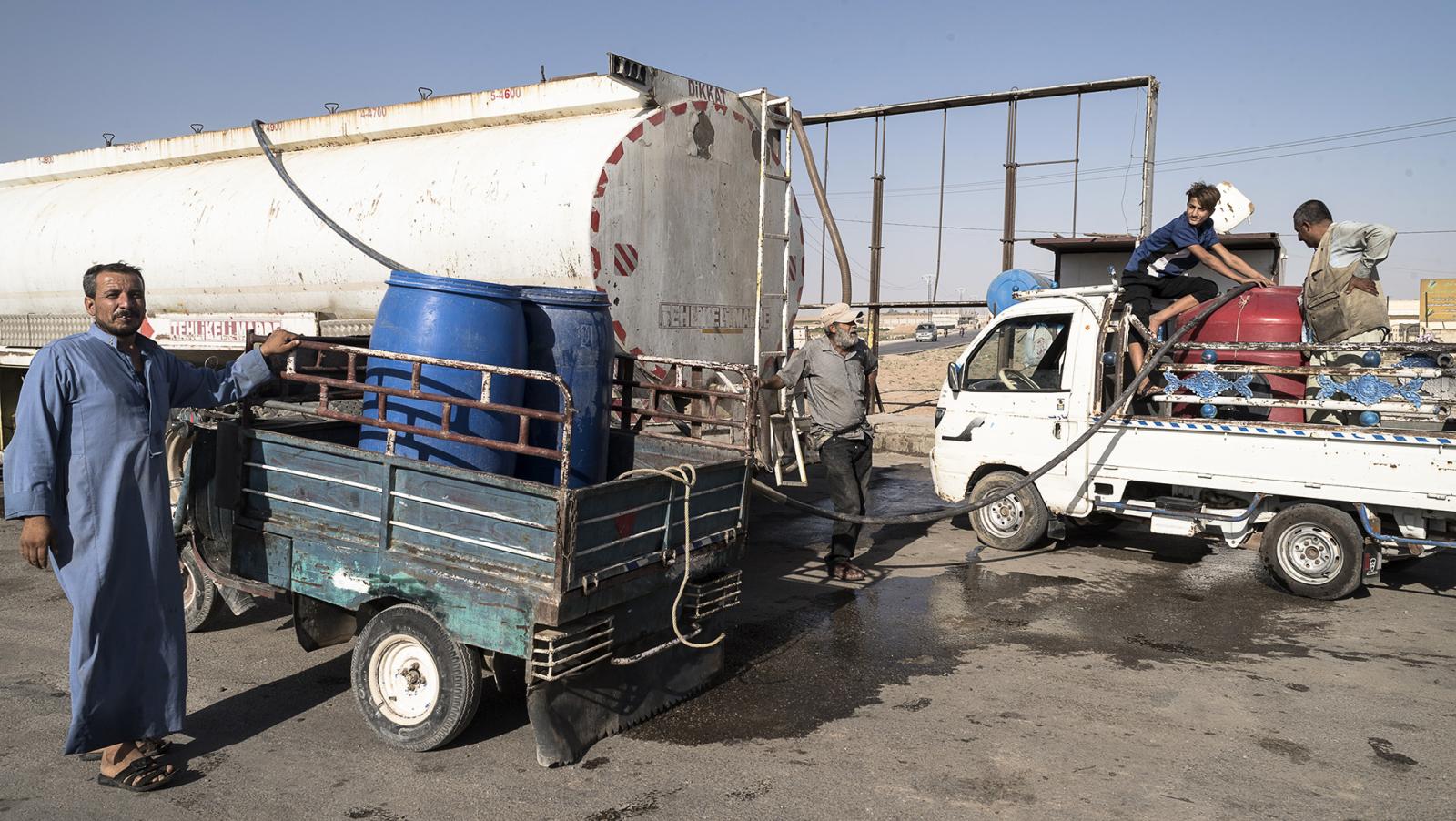
Syria’s cholera outbreak has now spread to every one of the country’s 14 provinces, with 24,000 suspected cases and more than 80 deaths since early September. Severe water shortages—exacerbated by war, politics, and climate change—have forced people to drink unsafe water and allowed cholera bacteria to spread in the extremely low Euphrates River. There are other dangerous impacts from what the UN calls an “already dire water crisis” that is likely to get worse: Pastures dry up, and farmers have to sell their livestock. Crop yields are low, prices go up, and more families are forced to skip meals.
It’s almost as predictable as what happens when winter comes to northern Syria, where some 1.7 million are displaced and living in camps. Many can’t afford heating and resort to burning whatever they can find; tents collapse under the weight of snow, and the temperatures can be deadly. Aid groups are working on what’s known as “winterization,” but this week a UN representative called the response “grossly underfunded,” warning that if more money doesn’t come in, “families will not receive the heating, fuel, blankets, and winter clothes they desperately need to keep warm.”
From The New Humanitarian, Oct. 28
Turkey is currently undertaking a campaign of forced deportation of Syrian refugees. Lebanon is also placing pressure on Syrian refugees to return. In the ongoing intermittent bombardment of northern Syria, Russian warplanes have struck water pumping stations.
Photo: Daniela Sala/TNH





Russia still bombing Syria
At least nine civilians were reportedly killed in the shelling of makeshift camps outside northwest Syria’s rebel-held city of Idlib on Nov. 6. Syria Civil Defense, better known as the White Helmets, said in a statement that the regime of President Bashar al-Assad and its Russian allies had “committed a massacre” and used cluster bombs on the camps. Russia’s media service TASS said Syrian forces had hit the base of a terrorist group, in response to a drone attack. The UN Human Rights Office verified the killing of at least seven civilians, including four children, in the incident. It added that the “upsurge in fighting and the return to violence are cause for alarm.” (TNH)